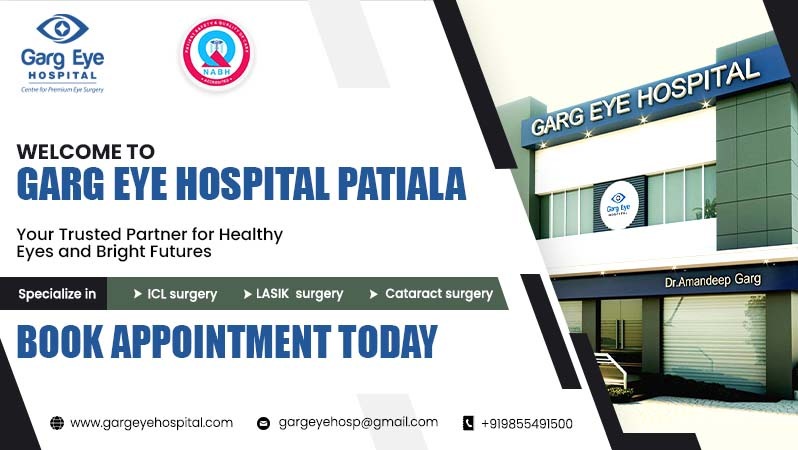LASIK is a type of vision correction surgery. In this type of surgery, the doctor needs a laser to cure vision problems caused by blending errors. You have a vision error when your eye does not refract light properly you need to take a proper treatment like LASIK surgery to correct your vision.
In this surgery, your ophthalmologist changes the shape of your cornea with the help laser. This laser eye surgery helps to improve how light rays focus on the retina. LASIK treats myopia (nearsightedness), hyperopia (farsightedness), and other eye problems.
LASIK’s motive is to correct your vision errors to improve your vision. LASIK eye surgery helps to reduce the need for eyeglasses or contact lenses.
Who Is a Good Candidate for LASIK Surgery?
- After 18 you can do LASIK surgery.
- Your eye prescription should not have been changed in the last year.
- Your corneas have to be thick or healthy, and your overall eye health must be generally good.
What are the Types of LASIK Surgery?
- Blade LASIK:-
This is the oldest LASIK procedure where the corneal flap is created using a blade. The corneal tissue is reshaped under the bottom of the flap using an excimer laser to correct the vision error.
- Femto LASIK:-
Femto Lasik is also known as bladeless or laser surgery. Femto LASIK is considered to have fewer complications and more accurate flap changes as compared to blade LASIK surgery.
- Contoura Vision LASIK:-
Contoura Vision LASIK is a modern form of LASIK surgery that uses high-tech technology along with corneal leading-edge data to create a highly customized treatment plan. Their motive is to provide better visual outcomes, especially in terms of night vision and contrast sensitivity.
LASIK Complications and Long-Term Effects
(Potential Side Effects & Complications)
LASIK eye surgery is a safe procedure, and the number of complications is very rare.
The most important variable to decrease the chances of LASIK side effects or problems is choosing the right surgeon who has better experience or who has the knowledge to use advanced technology to do LASIK surgery properly.
In the hands of an experienced surgeon, the chances of side effects or complications are very low. Any complications and side effects are removed with the help of advanced technology which is used during LASIK surgery.
Types of LASIK Complications
The most common complications that occur with LASIK are lingering side effects like dry eyes that need eye drops or visual distortions around lights, making night driving difficult.
- Dry Eyes: LASIK Eye Surgery can cause a short reduction in tear production. Because of these few months, your eyes feel dry you need eye drops to maintain moisture. Dry eyes can reduce the quality of vision. Your doctor may prescribe you with eye drops for dry eyes. whenever, if you feel severe dryness in your eyes, you can choose another procedure.
- Glare, Halos, and Double Vision: After the surgery you have to face some difficulties at night. It means you can’t see properly at night for a few weeks after this surgery. The patient may notice that he has a better sensitivity towards light, glare, or Halos. The patient might also experience double vision for a few days after this surgery. It may also happen that your vision in dim light may reduced after LASIK surgery as compared to before surgery.
- Under Corrections and Over Corrections: If Laser Eye Surgery wipes a few tissues from your eye, it is not good for you. Your Vision may not be too clear. For nearsighted people, it would be a common case. It is possible when LASIK Eye Surgery removes too many tissues from your eyes. Over-corrections are more difficult to cure as compared to under-corrections.
- Astigmatism: Unwanted wiping of tissues causes Astigmatism. It may need additional surgery, contact lenses, or glasses.
- Regression: Regression is a very strange problem in LASIK Eye Surgery. It occurs when your original vision comes back slowly after surgery.
- Vision Change or Vision Loss: Surgical problems may cause loss of vision in patients. But there are very rare cases of loss of vision. Many people complain to their doctor that they can’t see properly as they saw before surgery
- Flap Problems: Problems like Infection and excess tears are caused during surgery. This occurs when the doctor folds back or removes the flap from the front of your eye. During the healing process, you might also witness the outermost corneal tissue layer growing abnormally underneath the flap.
Long-Term Side Effects of LASIK Eye Surgery
- Autoimmune Diseases
- Persistent Dryness of Eyes
- A weakened Immune System
- Frequent Changes in vision because of various reasons like medications, pregnancy, age, hormonal changes, breastfeeding, etc.
- Inflammation of the Cornea
- Lid disorders
- Eye injuries or Eye Diseases such as Cataracts, Glaucoma, etc.



